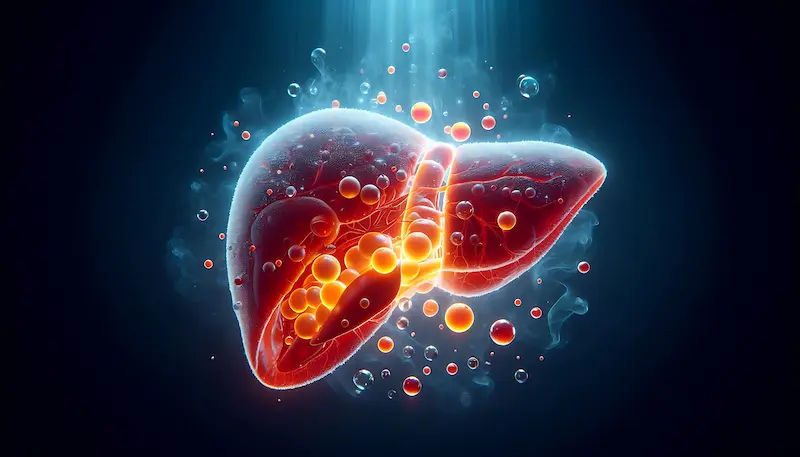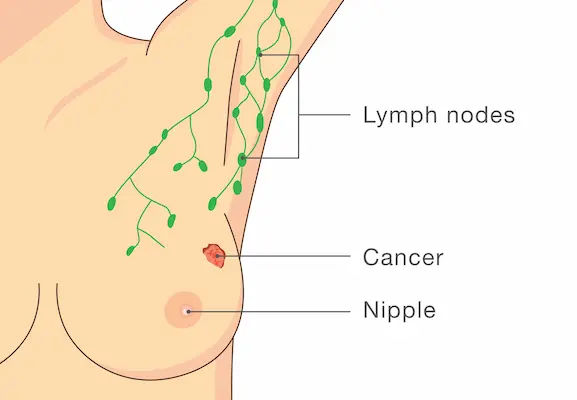Tiredness, Not Feeling Active, Know About The Surprising Causes of Drowsiness
know about tiredness and drowsiness, the link between them, the influence of food and other medical conditions and more.


Introduction
Feeling persistently drowsy can turn your day into a foggy struggle. You reach for that third cup of coffee, fight through afternoon slumps, and wonder, "Why am I always tired?" While occasional sleepiness is normal, constant drowsiness is your body's signal that something is off-balance. This feeling of excessive sleepiness, or somnolence, can stem from a simple late night or point to more complex lifestyle habits and underlying health conditions. Understanding the root cause is the first step toward reclaiming your energy. This comprehensive guide will walk you through the common and surprising causes of drowsiness, from your diet and daily routine to medical issues that need attention.
Understanding Drowsiness: It's More Than Just Feeling Tired
The Science of Sleepiness: Adenosine and Your Brain's Sleep Drive
Drowsiness isn't just a feeling; it's a scientifically measurable state. The primary driver behind your need for sleep is a neurotransmitter called adenosine. It accumulates in your brain throughout the day, creating a "sleep pressure" that makes you feel increasingly tired. When you sleep, your body clears this adenosine, readying you to feel alert upon waking. Caffeine works by blocking adenosine receptors, tricking your brain into feeling awake. However, if you don't get enough quality sleep, adenosine isn't fully cleared, leading to residual drowsiness the next day. Your circadian rhythm, your body's internal 24-hour clock, also plays a crucial role, dictating periods of alertness and sleepiness based on light exposure.
Consult a General practitioner for Personalised Advice
Drowsiness vs. Fatigue: Knowing the Difference
Many people use "drowsiness" and "fatigue" interchangeably, but they are distinct sensations. Drowsiness is specifically the urge to fall asleep. It's that heavy-eyed, nodding-off feeling during a meeting. Fatigue, on the other hand, is a broader term for a pervasive lack of physical or mental energy. You can feel fatigued, too exhausted to exercise or focus without necessarily feeling sleepy. Understanding this difference is key to identifying the cause. Drowsiness is often linked directly to sleep issues, while fatigue can be a symptom of a wider range of problems, including medical conditions, stress, or overexertion.
Lifestyle and Habit-Related Causes of Daytime Drowsiness
These include:
The Obvious Culprit: Poor Sleep Hygiene and Sleep Deprivation
The most direct cause of daytime drowsiness is simply not getting enough quality sleep. Adults typically need 7-9 hours per night. Sleep deprivation, whether from staying up late, working shifts, or insomnia, directly leads to a build-up of adenosine. Beyond quantity, sleep hygiene, the habits that promote consistent, uninterrupted sleep, is critical.
This includes:
An irregular sleep schedule
Exposure to blue light from phones and laptops before bed (which suppresses melatonin)
A sleep environment that is too hot, noisy, or bright
Using your bed for work or watching TV
Fixing these habits is often the first and most effective step in combating constant drowsiness.
You Are What You Eat: How Diet Influences Energy Levels
Know the factors which influence energy levels:
The Sugar Crash and Heavy Meals
That post-lunch slump is a classic example of diet-induced drowsiness. Eating a large meal, particularly one high in refined carbohydrates and sugars, causes a rapid spike and subsequent crash in blood sugar. This crash signals to your body that it's time to rest. Additionally, digesting a heavy meal requires a significant amount of energy, diverting blood flow to your stomach and away from your brain and muscles, making you feel lethargic.
Dehydration: A Hidden Cause of Low Energy
Even mild dehydration can significantly impact your energy levels and cognitive function. When you're dehydrated, your blood volume can drop, forcing your heart to work harder to pump oxygen and nutrients to your cells. This extra effort can leave you feeling tired and sluggish. Often, people mistake thirst for tiredness and reach for a coffee instead of a glass of water, which can further dehydrate them.
Sedentary Life: How Too Little (or Too Much) Exercise Can Make You Tired
It's a vicious cycle: you feel tired, so you skip the gym, which makes you feel even more tired. Regular physical activity improves the quality of your sleep and boosts energy by releasing endorphins and improving heart health. A sedentary lifestyle contributes to feelings of lethargy. Conversely, sudden, intense overexertion without proper conditioning can also lead to short-term fatigue as your body works to repair muscle tissue.
Underlying Medical Conditions That Cause Excessive Drowsiness
The medical conditions include:
Sleep Disorders: Beyond Just Snoring
Sleep Apnea: When Breathing Stops
Sleep apnea is a major and often undiagnosed cause of excessive daytime sleepiness. It involves repeated interruptions in breathing throughout the night, which fragment sleep and prevent you from reaching restorative deep sleep stages. Despite spending 8 hours in bed, you wake up feeling unrefreshed. Loud snoring, gasping for air during sleep, and morning headaches are key red flags.
Restless Legs Syndrome (RLS) and Insomnia
RLS causes an uncontrollable urge to move your legs, especially in the evenings, severely disrupting the ability to fall asleep. Insomnia, the difficulty falling or staying asleep, has numerous causes (stress, anxiety, medications), but its primary outcome is daytime drowsiness.
Mental Health: The Anxiety and Depression Link
Mental health is inextricably linked to physical energy. Both anxiety and depression are strongly associated with sleep problems. Anxiety can lead to a racing mind that makes it hard to fall asleep, while depression often leads to non-restorative sleep—sleeping for long hours but never feeling rested. The emotional toll of these conditions also contributes to profound fatigue and drowsiness.
Nutritional Deficiencies: Are You Low on Iron or Vitamin D?
Your body needs specific nutrients to create energy. A deficiency in key vitamins and minerals can directly cause drowsiness.
Iron Deficiency (Anaemia): Red blood cells need iron to carry oxygen. Without enough oxygen reaching your tissues, you feel extremely tired and weak.
Vitamin B12 Deficiency: Crucial for nerve function and energy production, low B12 leads to fatigue and brain fog.
Vitamin D Deficiency: Often called the "sunshine vitamin," low levels of Vitamin D are strongly correlated with fatigue and daytime sleepiness.
If you suspect a deficiency, a simple blood test can provide answers. Apollo24|7 offers convenient home collection for tests like vitamin D or HbA1c, making it easy to check your levels.
Other Chronic Conditions: Thyroid Issues, Diabetes, and Chronic Fatigue Syndrome
An underactive thyroid (hypothyroidism) slows down your body's metabolism, leading to fatigue, weight gain, and drowsiness. Uncontrolled diabetes, with its fluctuating blood sugar levels, is another common culprit. Chronic Fatigue Syndrome (ME/CFS) is a complex disorder characterised by extreme fatigue that isn't improved by rest and may be worsened by physical or mental activity.
Medications and Substances That Induce Drowsiness
A wide range of prescription and over-the-counter medications list drowsiness as a common side effect. These include:
Antihistamines (used for allergies and colds)
Sedatives and tranquillisers
Certain antidepressants
Medications for high blood pressure
Strong pain medications (opioids)
Furthermore, while alcohol might make you feel sleepy initially, it severely disrupts your sleep cycle later in the night, leading to non-restorative sleep and next-day drowsiness.
When to Be Concerned: Signs You Should See a Doctor
Occasional drowsiness is normal. However, you should consult a doctor if you are sleepy:
It is chronic and doesn't improve with better sleep habits.
It is so severe that it impairs your driving, work performance, or personal safety.
Comes on suddenly without explanation.
It is accompanied by other symptoms like snoring, gasping for air, mood changes, or leg discomfort.
If symptoms persist beyond two weeks, consult a doctor online with Apollo24|7 for further evaluation to rule out underlying conditions.
Conclusion
Persistent drowsiness is more than an inconvenience; it's a message from your body. As we've explored, the causes of drowsiness range from easily adjustable lifestyle factors like poor diet and sleep habits to more complex medical conditions such as sleep apnea or nutritional deficiencies. The key to solving this problem lies in careful observation. Start by auditing your sleep hygiene, diet, and exercise routine. Often, small, consistent changes in these areas can yield significant improvements in your energy levels. However, if your excessive sleepiness remains a mystery despite your best efforts, it is crucial not to ignore it. It could be a vital sign of an underlying health issue that requires professional diagnosis and treatment.
Consult a General practitioner for Personalised Advice
Consult a General practitioner for Personalised Advice

Dr. Mainak Baksi
General Practitioner
13 Years • MBBS , MD (MPH)
Howrah
Mainak Baksi Clinic, Howrah
(50+ Patients)

Dr. Rajib Ghose
General Physician/ Internal Medicine Specialist
25 Years • MBBS
East Midnapore
VIVEKANANDA SEBA SADAN, East Midnapore

Dr. Shaik Abdul Kalam
General Practitioner
3 Years • MD (Physician)
Visakhapatnam
Apollo 24|7 Clinic - Andhra Pradesh, Visakhapatnam
(175+ Patients)

Dr. Ashita Kuruvilla
General Practitioner
7 Years • MBBS
Kolkata
KVC CLINIC, Kolkata

Dr. Uddalak Chakraborty
Neurologist
8 Years • MBBS, MD(GENL.MED.),DM(NEUROLOGY)
Kolkata
MCR SUPER SPECIALITY POLY CLINIC & PATHOLOGY, Kolkata
More articles from General Medical Consultation
Frequently Asked Questions
1. What is the difference between feeling tired and feeling drowsy?
Feeling fatigued is a general lack of energy, where you may not feel like doing anything, but don't necessarily feel the urge to sleep. Feeling drowsy is specifically the overwhelming desire to fall asleep, often accompanied by heavy eyelids and difficulty staying awake.
2. Why do I feel sleepy after eating lunch?
This is often called a 'postprandial somnolence' or a food coma. It's primarily caused by a dip in blood sugar after the initial spike from a meal, especially one high in carbs and sugars. Digesting a large meal also diverts energy and blood flow to your stomach, contributing to feelings of lethargy.
3. Can dehydration really make me feel drowsy?
Absolutely. Even mild dehydration can reduce blood volume, making your heart work harder to pump oxygen and nutrients. This extra effort, along with altered electrolyte balance, can directly lead to feelings of tiredness and brain fog.
4. When should I be worried about my daytime drowsiness?
You should be concerned and consider seeing a doctor if your drowsiness is chronic, severe enough to impair your driving or work, occurs suddenly, or is accompanied by other symptoms like loud snoring, gasping for air, mood changes, or unexplained weight gain.
5. What are the best first steps to fight constant drowsiness?
The best first steps are to focus on sleep hygiene: aim for 7-9 hours of sleep, maintain a consistent sleep schedule, create a dark and cool sleep environment, and avoid screens before bed. Also, evaluate your diet, ensure you're drinking enough water, and try to incorporate regular moderate exercise.




